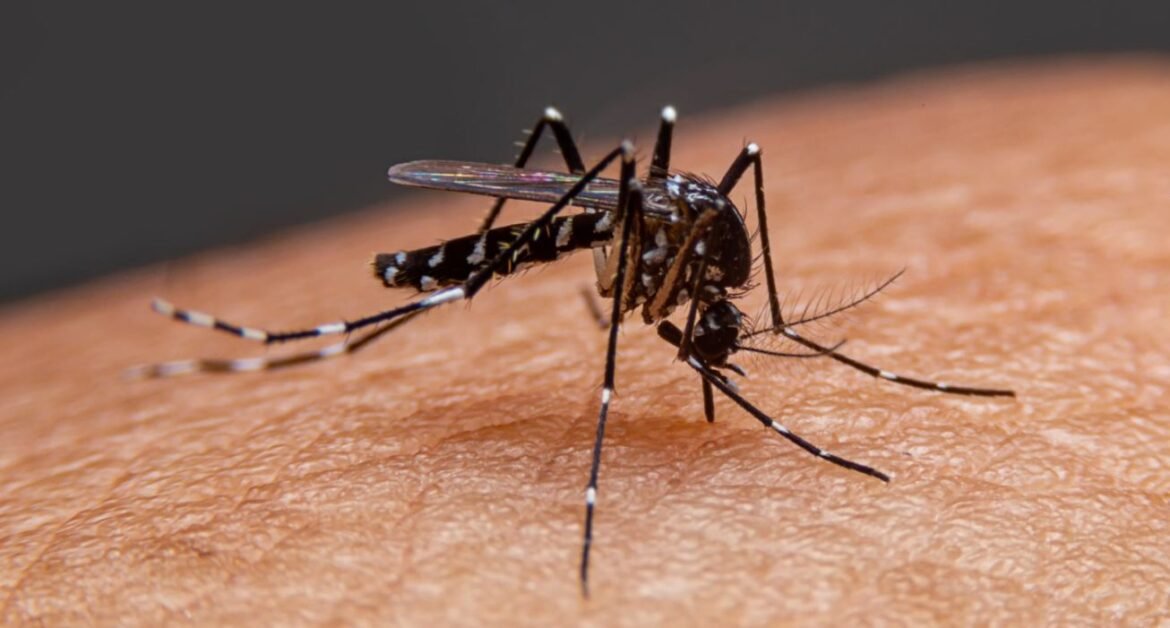Two methods have been investigated and found to be effective in the country, yielding positive results. The Wolbachia method and the Sterile Insect Technique (SIT) are the two methods.
Dengue fever, spread by the Aedes mosquito, remains a major public health problem in many regions of the world, including Bangladesh. As the number of dengue cases increases, researchers and public health professionals are researching innovative methods to combat the disease.
Dengue transmission rates have increased alarmingly in recent years, contributing to the worsening public health crisis. The number of reported dengue infections has surpassed 102,000 cases in a single year, according to the most recent data available by Directorate General of Health Services (DGHS).
A government-funded pre-monsoon survey of the city of Dhaka has uncovered an alarming increase in Aedes aegypti mosquitoes, known carriers of the dengue virus, which has contributed to the worst outbreak of the disease in the past five years. The majority of dengue-related fatalities were caused by hemorrhagic fever and shock syndrome, which health experts attributed to previously unidentified new strains of the deadly virus in Bangladesh.
Efforts of integrated mosquito control amid health crisis
As the disease continues to spread swiftly across the country, hospitals struggle to accommodate the influx of patients. The transmission rates have not only affected urban areas but also municipalities and villages, leading to the spread of dengue to 64 districts in Bangladesh. This increase in transmission rates highlights the importance of instituting effective mosquito control measures and innovative strategies to combat the growing threat of dengue.
You can also read: What did DNCC learn about mosquito control from Miami?
In the context of dengue prevention, entomologists and public health specialists have been discussing the methods for integrated mosquito control.
Two methods have been investigated and found to be effective in the country, yielding positive results. The Wolbachia method and the Sterile Insect Technique (SIT) are the two methods.
These two innovative techniques have shown promise in transforming Aedes mosquitoes and preventing the spread of dengue. In addition, the altering behavior of Aedes mosquitoes and the modification of mosquito control methods are also discussed.
The Wolbachia Method
Wolbachia, a naturally occurring bacterium, has attracted interest as a potential instrument for controlling Aedes mosquitoes without harming the environment. International Centre for Diarrhoeal Disease Research, Bangladesh (icddr,b) scientist Dr. Mohammad Shafiqul Alam explains that they are collaborating with an Australian university to conduct Wolbachia research. Introducing Wolbachia into Bangladeshi Aedes mosquitoes in the laboratory led to promising results. Before applying this method more broadly, however, it is necessary to conduct tests to determine its viability and prospective impact. Long-term, they can be cost-effective and environmentally favorable methods of mosquito control and dengue transmission prevention.
This method comprises two strategies:
Population Suppression: Male mosquitoes carrying Wolbachia are released into the wild. When males mate with females in the wild, the resultant eggs do not hatch, reducing the mosquito population. Countries including Singapore, Brazil, and Mexico have effectively implemented this strategy.
Population Replacement: Both male and female mosquitoes carrying Wolbachia are released. If they mate with one another or with wild mosquitoes, their offspring will not be infected with Wolbachia. Over time, Wolbachia-free mosquitoes replace Wolbachia-positive mosquitoes, reducing the risk of dengue transmission.
The Sterile Insect Technique (SIT)
In SIT, also referred to as Incompatible Insect Technique (IIT), male mosquitoes are sterilized and released into the environment. When these sterile males mate with wild females, no viable progeny are produced, causing mosquito populations to decline.
Bangladesh’s Atomic Energy Commission collaborates with the International Atomic Energy Agency (IAEA) to control Aedes mosquitoes using the SIT method, which has the potential to be long-lasting and effective, assuring population reduction through controlled reproduction. According to recent developments, Atomic Energy Commission now produces over 40,000 to 50,000 sterile male Aedes mosquitoes per week. In addition, with the aid of the IAEA project, the research facility has received advanced apparatus, including a machine for separating male mosquitoes and an artificial blood-feeding system (hemotek system).
Due to the lack of breeding success, the population of Aedes mosquitoes progressively decreases, thereby reducing their capacity to transmit diseases such as dengue. Countries such as Brazil, Spain, Italy, Indonesia, Malaysia, Singapore, and China have tested this method.
What are the challenges?
Recent research conducted by Dr. Kabirul Bashar of Jahangirnagar University has revealed changes in the breeding and behavior patterns of Aedes mosquitoes. Aedes mosquitoes currently reproduce in a variety of water sources, such as rainwater, sewage water, and saltwater. In addition to their diurnal biting behavior, they also exhibit nighttime biting behavior. These alterations present new obstacles to mosquito control.
Dr. Kabirul notes that despite the fact that these methods are encouraging, they have their limitations. Environmental release of genetically modified mosquitoes requires careful consideration. Additionally, when using Wolbachia, male, and female mosquitoes must be separated, which can be a laborious procedure.
According to experts, Wolbachia and SIT methods are both promising long-term strategies for combating Aedes mosquitoes. These fresh strategies seek to strike a balance between preventing disease transmission and preserving ecological balance.
Lastly, innovative methods for Aedes mosquito control are necessary because dengue remains a formidable public health problem. The Wolbachia technique and SIT offer environmentally friendly alternatives to conventional mosquito control methods, with a focus on reducing mosquito populations without disrupting ecosystems. Bangladesh can make significant progress in curbing dengue transmission and safeguarding public health by combining scientific advancements with strategic adaptations.


